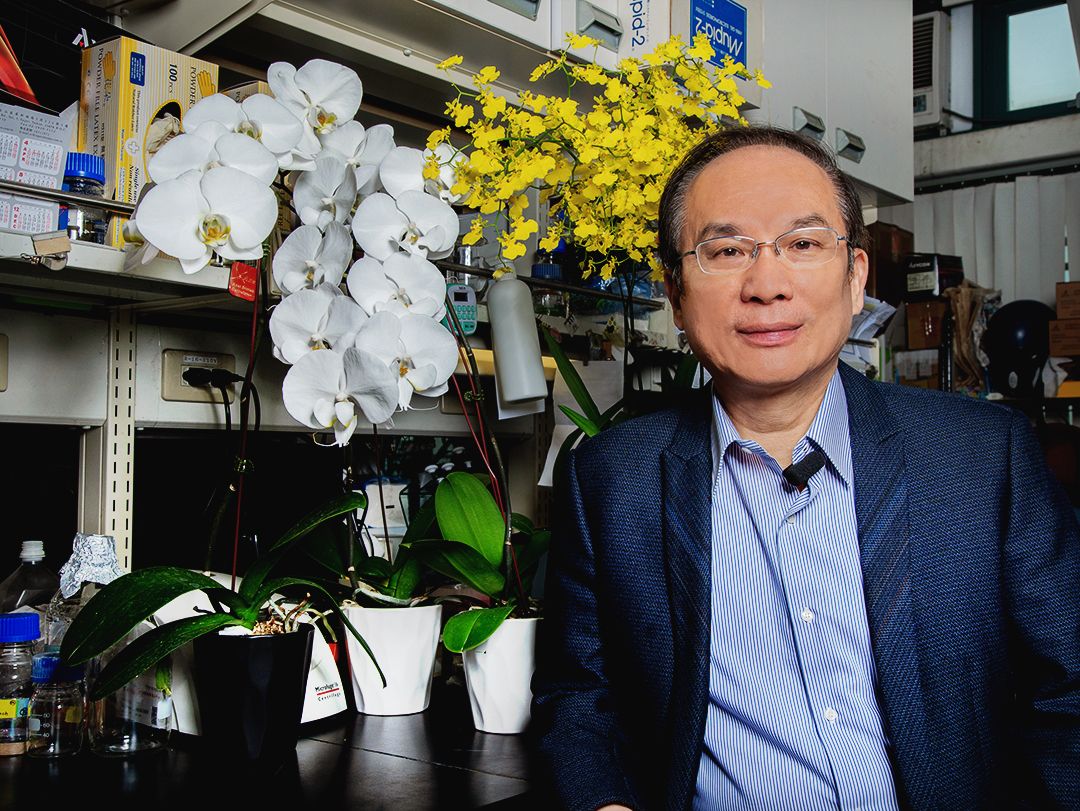2024-07-04
Decoding the Key Genes of Orchid: Chang-Hsien Yang from National Chung Hsing University Elected as Academia Sinica Life Sciences Academician

The newly elected academicians of Academia Sinica were announced today (July 4). Chang-Hsien Yang, Distinguished Professor at the Graduate Institute of Biotechnology at National Chung Hsing University, was elected as an Academician in the Life Sciences section. Professor Yang has dedicated his career to floral biotechnology research, not only discovering the key genes behind the beauty of orchids but also identifying genes that regulate flower color. Yang expressed his honor, especially given the rarity of being elected as an academician in the field of botany. He noted that this honor is not just a personal achievement but also a recognition of Taiwan's botanical community.
Chang-Hsien Yang holds a Ph.D. in Genetics from the University of California, Davis, and conducted postdoctoral research at the University of California, Berkeley, before returning to Taiwan to focus on orchid research.
Yang explained that there are 28,000 varieties of orchid flower shapes, including sepals, petals, and lips. Since Darwin, scientists have been curious about the mechanisms controlling these evolutionary traits, but lacked the molecular biology techniques to explain them. Yang’s breakthrough research identified the regulatory mechanisms controlling petals and lips, further discovering genes that control flower color, wilting, and aging.
Yang stated that this represents a significant academic breakthrough. In the laboratory, they can enlarge the orchid lip to create a "big lip" orchid, modify flower color intensity, and alter flower shapes. If regulations are relaxed in the future, these modifications could be applied practically, allowing customized orchid aesthetics without the need for transgenic methods, reducing the process time from 2-3 years to just 2 months.
National Chung Hsing University noted that Yang successfully unveiled the mystery of "Orchid Beauty," discovering that the variations in orchid sepals, petals, and lips are regulated by two protein complexes. This research was published in 2015 in Nature Plants, part of the prestigious Nature series, and was featured on the cover. It was also selected as a Research Highlight across all Nature series journals that week.
Yang’s subsequent research uncovered the "perianth code," identifying key genes in orchids that regulate multiple functions, including flower color, sepal and petal aging, and pedicel abscission. This study was published in 2021 in the top-tier journal Nature Communications.
Known as the "Orchid Professor," Yang has made significant contributions to Taiwan's agricultural and floral industries. He was awarded the Ministry of Education's National Chair Professorship in 2017 and 2021 and was later promoted to Lifetime National Chair Professorship. His election as an Academician is a well-deserved honor.
Article source: https://udn.com/news/story/6928/8074347
